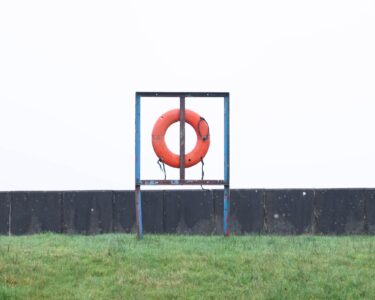This year’s wildfires in Los Angeles didn’t only destroy homes and livelihoods they also revealed the longstanding inequities in disaster response. The workers who are clearing debris, the small business owners struggling to reopen, the laborers who lost their income, and the immigrant families still displaced from their communities are facing challenges that go well beyond this moment. Yet, disaster response efforts continue to fall short of prioritizing these communities, leaving them without the resources and support they need to recover.
At the Latino Community Foundation (LCF), we’ve learned that disaster response efforts are best led by those rooted in the communities. Our approach isn’t just about writing checks. It’s about listening, trusting, and investing in the grassroots organizations that know their people best. This is the formula for an equitable recovery, and this is what philanthropy must embrace this approach more fully.
The Challenges Facing Latino and Immigrant Communities in Los Angeles
Recent research from the UCLA Latino Policy and Politics Institute has shown us a grim reality: Preexisting health and pollution disparities have only worsened the impact of wildfires on Latino and immigrant communities in Los Angeles. At the start of the fires, 74,000 Latinos were at risk of displacement. Wildfire smoke also disproportionately affected outdoor workers, who already deal with serious health and economic risks. What’s even more troubling is that systemic barriers, such as limited healthcare access, language obstacles, and exclusion from relief efforts, are exacerbating the suffering of these communities.
Worse yet, the policies coming out of Washington D.C. are compounding the crisis for vulnerable communities. Aside from the political gridlock surrounding federal aid for California, the growing anti-immigrant rhetoric fuels fear, making many individuals hesitant to seek help, as they worry about being deported. This climate of fear prevents families from accessing emergency relief, even when it is desperately needed.
A Faster, More Just Response
LCF moved quickly to deployed $1.1 million from our California Wildfire and Disaster Relief Fund in less than a week after the fires began, ensuring resources flowed directly to organizations rooted in affected communities. The urgency stemmed from the fact that this is our community. Our identity as a foundation is closely tied to the identity of these families and workers, and we understood that recovery wouldn’t be equitable unless they were at the center of it.
What’s more, LCF cultivates its partnerships long before disaster strikes, allowing us to respond swiftly. These relationships are long-standing and run deep: In 2019, our Senior Director of Grantmaking and Special Projects Manager Samantha Sandoval drove to an evacuation shelter in Santa Rosa to deliver checks to Corazón Healdsburg and the North Bay Organizing Project, which were helping bilingual evacuees affected by the Kincade Fire.
Our relationships and values as an organization allowed us to do the same for Los Angeles. We knew the right partners and trusted them to act, moving funds quickly to organizations like National Day Laborer Organizing Network (NDLON) that mobilize workers to provide aid; Comunidades Indígenas en liderazgo (CIELO) that reached immigrants and indigenous communities with their commitment to language justice; Instituto de Educación Popular del Sur de California (IDEPSCA) that continues to raise awareness about worker safety, ensuring cleanup efforts didn’t come at the cost of workers’ health. These organizations are ensuring Latino communities have a voice in their own recovery.
What Philanthropy Did Right and Where We Go From Here
LCF wasn’t the only foundation that moved quickly. In the wake of these most recent fires, we saw funders take bold action. They moved resources quickly and invested in grassroots organizations best positioned to lead recovery efforts. But there is still more work to do.
To lead an equitable recovery philanthropy must continue to:
- Accelerate the Flow of Resources: When funding reaches communities immediately, it saves lives. Moving quickly ensures that immediate needs like shelter, food, medical care, and safety are addressed, while also giving communities the flexibility to adapt and respond to their unique circumstances. We allow communities to stabilize and give them the tools they need to recover.
- Partner with Intermediary Funders: Intermediary funders have the capacity to build and maintain deep, trusting relationships with community leaders. By leveraging their expertise and local knowledge, intermediary funders can identify pressing needs quickly and deploy effectively to maximize impact. This approach not only strengthens grassroots organizations but also creates a more resilient and responsive philanthropic ecosystem.
- Commit to Long-Term Recovery: Recovery doesn’t end when the fires, floods, hurricanes or public health emergencies subside. Philanthropy must sustain its investment beyond immediate relief, focusing on economic justice, workforce protections, and rebuilding efforts that center oft-overlooked communities, including Latino and immigrant families and workers. A true commitment to recovery requires staying engaged long-term, not just in the immediate aftermath of a disaster.
History Doesn’t Have to Repeat Itself
Time and again, Latino and immigrant communities have been lost in disaster recovery. During my time as U.S. Secretary of Housing and Urban Development and Mayor of San Antonio, I witnessed how communities faced obstacles due to language barriers and immigration status. During COVID-19, the nation watched as essential workers bore the brunt of the pandemic while receiving little support. With Los Angeles’ recovery underway, we risk these vulnerable communities once again being sacrificed without protection, access to federal relief, or a clear path to an equitable recovery. What does it say about us as a nation if we allow this pattern to continue?
Disasters can either reinforce inequality or serve as a turning point toward justice. Philanthropy has the opportunity to step up, not just in moments of crisis but throughout the long haul of recovery. Now, it’s time to make this the standard, not the exception. Los Angeles has a chance to rebuild not just what was lost, but to emerge as a stronger, more just, and more equitable city.
Julián Castro is CEO of Latino Community Foundation, former U.S. Secretary of Housing and Urban Development, and former Mayor of San Antonio.
Editor’s Note: CEP publishes a range of perspectives. The views expressed here are those of the authors, not necessarily those of CEP.
👇Follow more 👇
👉 bdphone.com
👉 ultractivation.com
👉 trainingreferral.com
👉 shaplafood.com
👉 bangladeshi.help
👉 www.forexdhaka.com
👉 uncommunication.com
👉 ultra-sim.com
👉 forexdhaka.com
👉 ultrafxfund.com
👉 bdphoneonline.com
👉 dailyadvice.us




